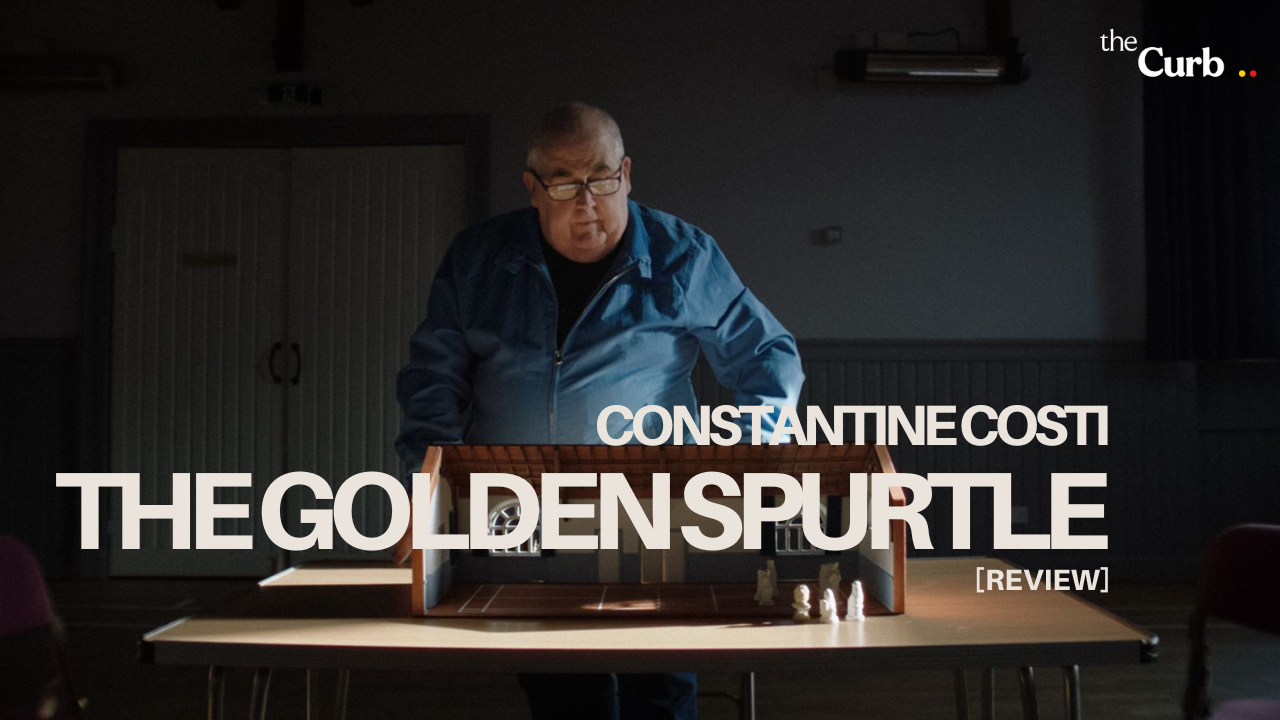There’s something quietly magical about a documentary that doesn’t try to dazzle you, but instead invites you in like a warm bowl of something familiar. The Golden Spurtle isn’t loud, flashy, or world-shaking—but that’s exactly its charm. It’s the kind of film that you feel rather than just watch, gently stirring emotions you didn’t expect to find in a movie about porridge.
Yes, porridge.
Set in the postcard-pretty Scottish village of Carrbridge, this film follows the annual World Porridge Making Championships, an oddly specific but strangely endearing culinary competition. The stakes are low, the contestants are humble, and yet every frame carries a sort of quiet importance—as if the fate of the world really is hanging on the consistency of one man’s oats. It’s quaint, a little eccentric, and deeply human.
But what surprised me most was how it all connected back to something I’ve loved for as long as I can remember: Australia.
I’ve always been fascinated with Australia—not because I’m from there, but because something about it always seemed faraway and full of stories. The nature, the history, the people, the culture—it’s rich in contradictions and beauty. So, imagine my joy when an Australian thread appeared in this very Scottish story, weaving the two together with warmth and a bit of whimsy.
That thread is Toby Wilson, a Sydney-based taco chef with a scruffy beard, a DIY kitchen setup, and an unmistakable passion for oats. He’s not the kind of competitor you expect in a porridge championship, but that’s exactly what makes his presence delightful. He brings something fresh to the tradition-heavy scene—not to shake things up or win big, but just to be part of it. Watching him haul his gear across continents to stand in a cozy Scottish hall and stir oats with quiet intensity made me think about what it means to belong somewhere, even if only briefly.
And maybe that’s the real heart of this story. It’s not just about who makes the creamiest, most consistent porridge. It’s about connection. The kind that spans oceans, generations, and kitchen counters. Whether it’s through Charlie Miller—the retiring organizer who feels more like a folklore character than a real man—or the eccentric repeat contenders who treat the Golden Spurtle like their personal Mount Everest, every person in this film feels somehow known. Like you’ve met them before. Like you could meet them in your own life, if you just stopped to look.
What I appreciated most is how gently the film handles its humor. It’s never mocking, never cruel. The characters may be quirky, but they’re never caricatures. The film treats their obsessions, dreams, and defeats with real tenderness. And even though it sometimes plays like a mockumentary (I’m looking at you, Nick Barnard), there’s no wink to the camera. Just sincerity.
Visually, it’s restrained in the best way. The use of a 4:3 aspect ratio gives the film an almost nostalgic quality, as if you’re watching home videos from a trip you never took but somehow remember anyway. Carrbridge is beautifully captured—not in sweeping drone shots or polished tourist-video perfection, but in soft glimpses of fields, kitchens, and faces. The cinematography doesn’t scream at you; it whispers. And in doing so, it feels real.
The pacing is gentle, even sleepy at times, and that won’t be for everyone. I can see how some viewers might find the film a little too quiet, too repetitive. There are no major twists, no “aha” moments. The plot is basically: people arrive, they stir oats, someone wins. But if you sit with it, if you let yourself sink into its rhythm, you’ll find something nourishing—like a story that doesn’t need to shout to be heard.
The Golden Spurtle is also a love letter to rituals. Not grand, dramatic rituals, but the kind built slowly over years—the kind that live in quiet towns and community halls, in handwritten signs and shared spoons. It’s about tradition without rigidity, competition without cruelty. And in a world that feels increasingly harsh and fast, there’s something radical about that.
By the end, I felt like I’d been somewhere. Not just in Scotland, but in a headspace I don’t often get to visit—one of slowness, care, and gentle purpose. The film doesn’t need to be groundbreaking to be meaningful. Like porridge itself, it’s not here to impress. It’s here to fill you up, keep you warm, and remind you that even the smallest things—like a perfectly stirred pot of oats—can matter deeply to someone.
And isn’t that beautiful?
Director: Constantine Costi
Featuring: Ian Bishop, Adam Kiani, Lisa Williams
Writer: Constantine Costi
Producers: John Archer, Rebecca Lamond
Cinematographer: Dimitri Zaunders
Editor: James Alcock
Screening or Streaming Availability:

